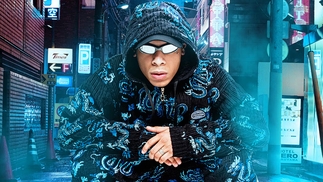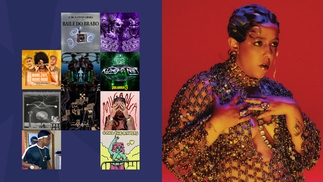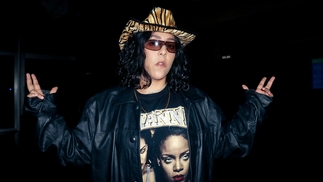KICKING OFF IN BRAZIL: NEW ACTS
It's not just the Football that's putting Brazil in the spotlight...

“Brazil is having a bit of a moment,” says Flow, the female half of the Rio-based girlfriend-and-boyfriend house DJ/production duo Flow & Zeo.
“Something exciting seems to be happening now with dance music.”
Marian ‘Flow’ Meirelles and Jose ‘Zeo’ Guinle (his dad owns the infamous Copacabana Palace hotel in Rio) have been DJing together for 14 years. They have their own label, Tropical Beats. And they make music too — an emotive techno-house blend (check out the spooky deep house tune ‘I Use To Say’ for size) crafted in the home studio they share.
And while Brazil might be ‘having a moment’ with dance music right now, its history stretches all the way back to samba, a sound that has its roots in African religious traditions brought to Brazil by slaves from West Africa. Samba as we know it today became popularised in Bahia, in Brazil, at the beginning of the 20th Century. And it’s now recognised around the world as the symbol for carnival.
Samba rhythms underpin many forms of electronic music, although now they’re more often generated using computers than the drums and other instruments used to play that music in a live setting. And bossa nova (or new wave in Portuguese), another influence and source in a lot of the electronic music we listen today, is derived from samba.
Earlier this year, Brazilian d&b legend DJ Marky — one of the pioneers of the country’s electronic music history along with his production partner DJ Patife — released a re-work of classic Brazilian soul record ‘Freio Aerodinâmico’, by Marco Valle. His modern take on the classic is laced with rolling percussion — characteristic of Marky’s production sound — and deep samba rhythms.
Music aside, it’s Brazil’s growing club and festival culture that’s also putting the country on the global dance music map.
A 2011 study commissioned by the organisers of Rio Music Festival, one of the largest electronic music events to happen in the Southern hemisphere, found that ticket vendors collected $515 million for festivals and large, outdoor parties in 2011 in Brazil, up 56.64% from the previous year. And figures have grown year-on-year since then. Not least because of the explosion of Balnéario Camboriu, a major beach resort in the southern state of Santa Catarina that’s become a mecca for clubbing and dance music festivals.
The long-running Warung sits pretty on that same golden-sand-kissed coastline and also in the area is Green Valley, a venue and clubbing brand that launched the Dance Valley Festival in 2012.
All this is great news for the likes of David Guetta, Ferry Corsten, Sven Väth, Erick Morillo, Fatboy Slim, Bob Sinclair, Armin van Buuren and Hardwell; who can charge fees reportedly in the quarter million dollar mark to play in the area.
Local big-name DJs such as Gui Boratto, Rodrigo Viera and Mario Fischetti are pretty happy about the rise of Balnéario Camboriu too.
What this also means — and this is the exciting bit — is that all this international attention means there’s a string of Brazilian DJs and artists who land lower down on the DJ billing than those ‘superstars’ who are getting exposure.
Most of these lesser-known artists are making up what is becoming the underground of Brazil — a varied mixture of techno and house that’s getting picked up on from labels in Europe and the US and putting the country on the map for much more than the World Cup this year. Read below for the best new players...
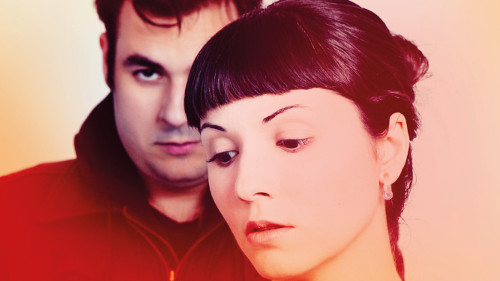
DIGITARIA
“DJ Hell really loves Brazil,” says Daniela Caldellas, one half of electro/ deep house duo Digitaria.
“When we met him back in 2006, he said ‘I usually come to Rio but I can try to go to Belo Horizonte this time’. That’s where we used to live. He ended up coming and staying for four years. And we became close. Eventually we released music on Gigolo Recordings.”
It was the tracks that Daniela worked on with Daniel Albinati, on the first night they met, in 2004, that eventually were released on Gigolo as ‘Teen Years’ in 2006. The 1980s-influenced electro house tune was quickly licensed to a Ministry of Sound compilation.
“I remember first meeting Daniela at a party, inviting her back to my studio and she started singing that night, I recorded it and I said to her ‘you have to come back’,” he says. “She did, and we’re still here.”
A lot has changed since then. They released their sublime ‘Masochist EP’ on Hot Creations. They “moved to Europe”. They’re no longer a couple (they hooked up on that first night) and their eventual split, in 2012, they say they “exorcised” in an album called ‘Emotion/ Stimulation’ that came out on Bulldozer in 2011. Look out for a new album on 21st July on Hot Creations.
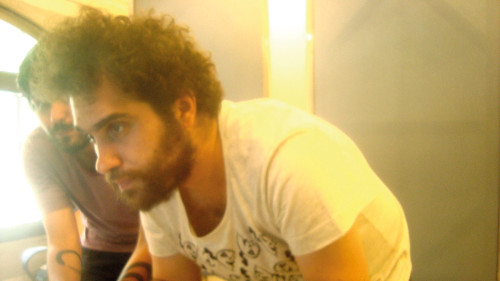
BABE, TERROR
“The day I’ll be part of any scene — part of one consciously — I’ll have to stop making music,” says 33-year-old Claudio Szynkier, aka Babe, Terror.
He’s now signed to Erol Alkan’s Phantasy Sound label, but his career started when he released his free EP ‘Channel 4’ on the internet — a sliver of atmospheric, cinematic, quirky techno.
Babe, Terror’s music comes across like a city of sound, creating a picture in your head every time you listen. Press play on ‘Knights’, and you get five tracks of experimental, lo-fi, meandering madness, set over a gently gnawing drum machine. The music for his first album ‘College Clash’, that came out on Glue Moon Records, was inspired, he says, by late-night walks in São Paulo, where he lives.
“And also by obscure American bands of melodic and dirt instrumentation, such as Brando and Liquorette,” he adds. “And of course, the Beach Boys.”
You can hear all these influences in Babe, Terror’s music. And now he’s working on a new album. “I make music on my laptop,” he says. “And I’m always guided by the spirit of the founder organism of modern music that is the Beatles in 1967.”
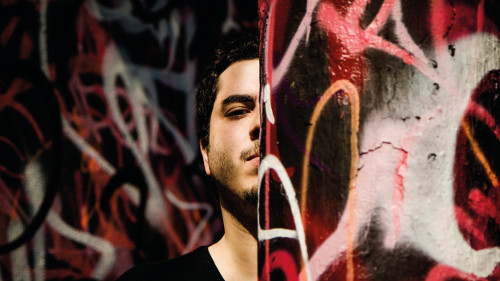
WEHBBA
“I'm currently working on two production projects: Rosco Sledge, which is just me, showcasing my housier side, for 2020Vision, and also Edit Revenge, a multimedia project with my partner in crime Junior C,” says Rodolfo Wehbba. “I enjoy playing music that moves me and takes me to a certain state of mind, which means most of it has some sort of melodic content or special hooks, I haven't jumped on this kind of straight-muscle-techno trend that's been going around.”
Wehbba’s been making music for a decade, ever since swerving his planned career as a dentist. It was a savvy swerve, because he’s since released tunes on Toolroom, Bedrock, Skint, Tronic and more.
His first studio album, 'Full Circle', came out on Tronic in 2010 and the second one, 'Square Two', came out on the same imprint.
For 'Square Two' — an LP that shifts deftly between funky techno and big room house – he says his inspiration was his “life in São Paulo”.
“The bad thing about the underground music scene in São Paulo is that it sometimes feels a bit like it's traffic: chaotic, stuck, and limited,” he says.
“The thing is, that inspires me to try to make a difference, to be a part of something and fight for it, not just do it for myself.”
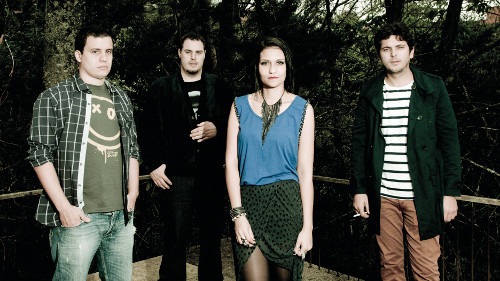
FUNKY FAT
“We like to start a track with the vocals and melody or even a guitar riff,” says Thiago Guimaraes, of four-piece live house band Funky Fat.
“But of course there is no formula.”
The no-formula approach has led to releases that lace indie-influenced melodies over fat basslines and 4/4 beats. Recent outing ‘Ride the City’, fresh on Miguel Campbell’s Leeds-based label Outcross Records, is one of their finest moments yet. Before that, they collaborated with fellow Belo Horizonte band Digitaria on the ‘Masochist EP’.
But their ‘Jealousy EP’ — that came out on Hot Creations in 2013 — was the one that Solomun, Jamie Jones, Lee Foss, Miguel Campbell, Sasha, Joris Voorn, Claude VonStroke, Phonique and M.A.N.D.Y all found it necessary to shout about.
“We got inspired by the 1980s for that song, using a kind of punk vocal along with a funk guitar,” says singer Manuela d’Alcântara. “People go crazy when we perform it live.”
The band met Hot Creations boss Jamie Jones when he was playing at a club called Deputamadre, in Belo Horizonte. “I gave him a USB drive with our first tracks,” says Manu. “And he loved them.”
The band say they’re inspired by Daft Punk, The Strokes, The Knife and Martin Solveig. They start a European tour in July and, while they’re travelling, they say, they’ll be making music too.
“There is a collaboration we did with a famous hip-hop artist in Brazil coming out in July,” says Guilherme Santoro. “We have a good feeling about it.”
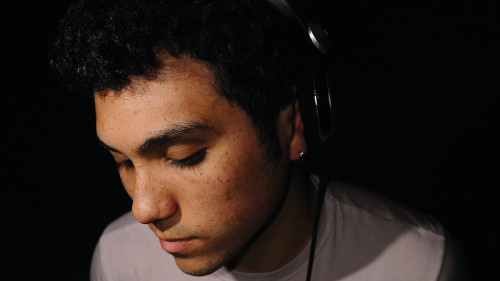
HNQO
DJing back-to-back with Lee Foss, touring Australia or planning what to release next on his Playperview label is the kind of stuff 22-year-old Henrique Oliveira, aka HNQO, gets up to.
And while he’s been DJing for years — playing deep house in clubs in and around Curitiba, where he’s from — he hasn’t been producing music for long. His first release — the deep, stripped-back house tune ‘Point of View’, that came out on Jamie Jones’ Hot Creations — he says he made “on the nightshift at the youth hostel” he was working in. “Then my friend gave a USB stick with that track on it to Russ Yallop, who was DJing in Curitiba,” he says.
One night, messing around on YouTube, Oliveira found footage of Jamie Jones playing ‘Point of View’ at the La Rocca club in Belgium. He got in touch. Jamie Jones signed him up for the EP. And the rest, as they say, is history.
Oliveira recently remixed fellow Brazilian Gui Boratto’s ‘Flying Practice’, out now on Kompakt Records. He’s working on new music “fusing elements of jazz, hip-hop and funk into deep house grooves” and is now so busy with that, DJing and his label that he’s had to ditch his job at the hostel. And with fans including Pete Tong, Seth Troxler, Solomun and lots more eagerly awaiting the next hit of HNQO, it doesn’t look like he’ll have to head back to the hostel nightshift any time soon.
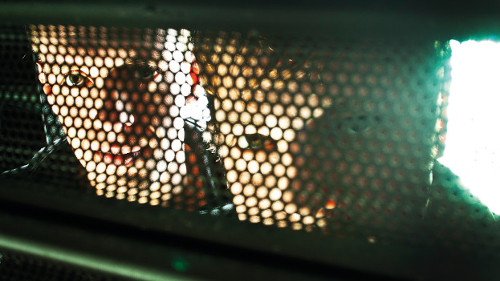
CLICK BOX
Synthesisers, laptops and effects are the tools that Click Box — aka São Paulo DJs and producers Marco AS and Pedro Turra — use to make their music. With them, they create a proto-house, electro and minimal techno hybrid that’s pricking up ears on all continents.
They’d been making music for three years when they got their lucky break, in 2007, after playing on a billing with Magda and Troy Pierce, who were so wowed by their live show, they signed them up for their Items & Things label.
“Magda said she loved our music,” they say. “So she released it.”
The ‘Espaco e Tempo’ EP came out on Items & Things in 2008. The pair had already had releases on INgrooves and Alertha Records. But it was tunes such as the deep, dark and funky ‘Fun K Mouth’ that really put them on the map beyond Brazil’s borders. Richie Hawtin wouldn’t stop playing it. And it still crops up in his sets now.
Since then, the pair have released more on Magda’s co-owned label. And while they work on an album, they’re taking their live show all over the world. Catch them if you can.
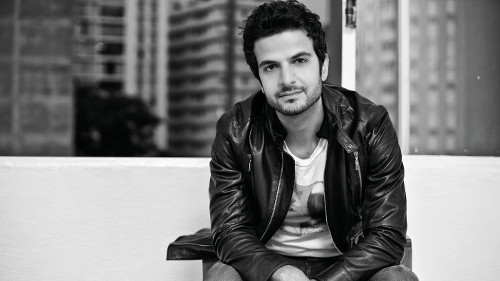
BOGHOSIAN
When D-Edge and Warung resident Paulo Boghosian isn’t DJing, he spends time making music. And one of the finest products of one of these studio sessions is ‘Esta Vida’, a chugging, percussive, tripped-out, tribal house tune full of summery, Latin atmospherics. It’s so good that Defected snapped it up last year, and released it as the ‘Esta Vida EP’ with the sublime ‘La Palabra’ in the pack too.
“I love world music; from India to Africa to Latin America, and it features in my productions,” says Paulo Boghosian, who started DJing in 1999, aged 18. “That was the basis for ‘Esta Vida’.”
Boghosian lives in São Paulo, a place he calls “completely hectic and crazy”, but also an inspiration. “Warung, the club where I have a residency, is a stronger inspiration to my music than anything else,” he says. “There’s an exciting and mysterious energy there.”
Boghosian is working on new music now, using a combination of “soft synths”, computers and hardware including a Dave Smith Tetra, a Vermona Mono Lancet, a vintage SH-101 and a brand-new Roland TR-8.
“I’m really excited by this ‘let’s get back to analogue house’ thing that’s going on,” he says. “My new productions are inspired by that.”
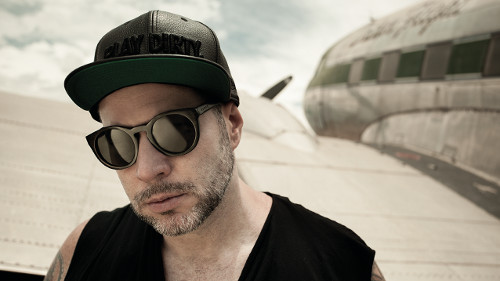
RENATO RATIER
Running two of Brazil’s best clubs — D-Edge and Warung — is bound to be busy work, especially when you’re DJing and making music too.
"I was spending a lot of time partying, even when I wasn't DJing," says Renato Ratier, talking about the period running up to him making his debut artist album ‘Black Belt’, a house music onslaught that he released on his own D-Edge Records in October last year.
The karate reference in the title, he says, was directly linked to the rigorous martial arts regime he undertook in the run up to producing the LP, in order to help curb his well-documented, hedonistic party ways.
All of that is a far cry from the agricultural background he comes from. He’s been putting parties on since he was 16, but stopped to study agriculture at university.
In the early 1990s, while he was studying, he says he was more interested “in acts such as Depeche Mode”. It was after seeing The Chemical Brothers play live at a rave in 1995 that everything changed and he started DJing, playing the house and techno he still loves now.
“São Paulo is foggy and industrial, so techno suits,” he famously said.
Renato’s ‘Brazilian Gigolo’ compilation that came out on DJ Hell’s label in 2013 is a testament to his love for techno and house. So too are his own releases. Try out his ‘Soul Machine’, on D-Edge Records, for a taste of what he loves most.
BONUS BEATS
More Brazilian acts to watch for
CARLO DALL ANESE
This DJ's already made a big name for himself in Brazil with an upfront and more main room sound. With a huge fan-base already, he's setting his sights further afield.
DUBSHAPE
A duo from São Paulo already making big waves. Their tough tech house productions have already found an outlet through perennially fresh labels Kompakt, Supernature and 8-Bit, and who can forget their classic, funky collabo with Guti, 'Every Cow Has a Bird'?
ELEKFANTZ
Signed to Gui Boratto's new label D.O.C (distributed by Kompakt), this pair are going places, with a funked up prog-techno vibe familiar to any lovers of the former's music.

